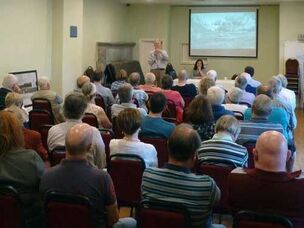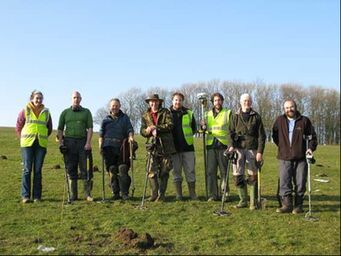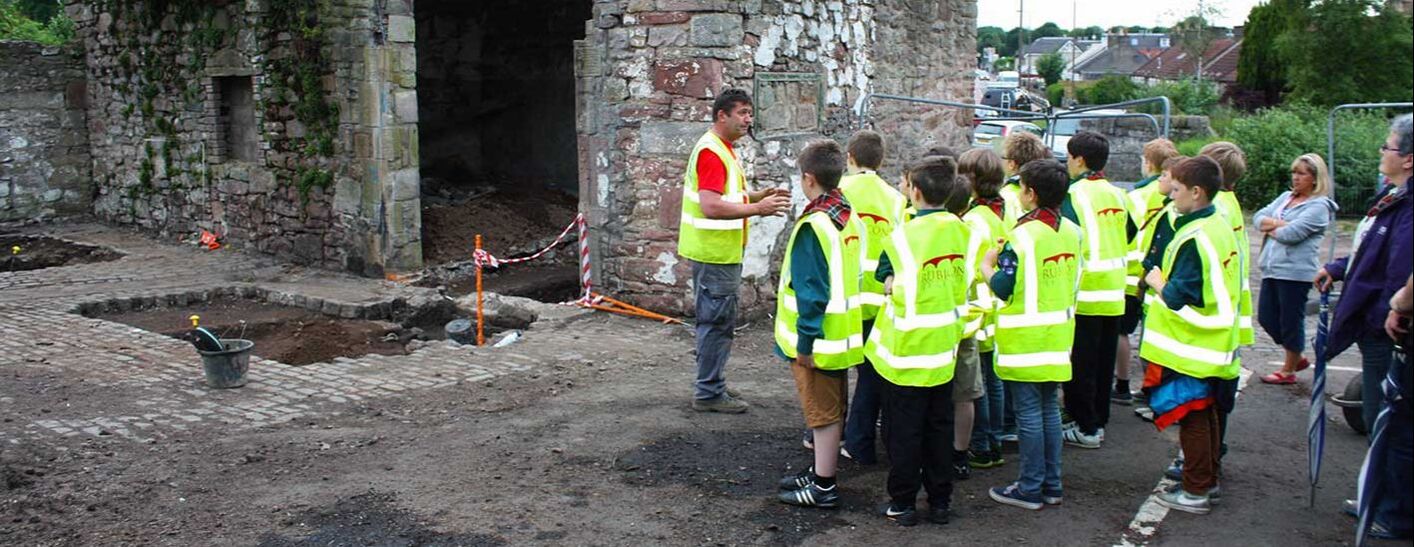Public Presentations

Why do we need to engage with a wider audience?
Once all the planning, logistics, survey, testing, excavation, research, analysis, conservation and reporting is finished, the work is still not complete until the results have been shared. Archaeological excavation is undertaken for the preservation of a site by record – once it is dug, it exists in archive form only. It is therefore extremely important to not only have a robust and thorough site record, but to disseminate the findings. All archaeological research is futile if results are not shared.
Once all the planning, logistics, survey, testing, excavation, research, analysis, conservation and reporting is finished, the work is still not complete until the results have been shared. Archaeological excavation is undertaken for the preservation of a site by record – once it is dug, it exists in archive form only. It is therefore extremely important to not only have a robust and thorough site record, but to disseminate the findings. All archaeological research is futile if results are not shared.
Who is your audience?
The way information is presented is just as important as the information itself. Publishing archaeological findings among the academic community in order to further the scientific aims of understanding past human behaviour may take the form of book publications, journal articles, or conferences. However, that would not be suitable for a wider public audience. Archaeology has the unique ability to inform our understanding of ordinary people of the past. This connection to the public of the past is a means to engage the public of today. Suitable options for public outreach may include site tours, seminars, news articles or webinars.
The way information is presented is just as important as the information itself. Publishing archaeological findings among the academic community in order to further the scientific aims of understanding past human behaviour may take the form of book publications, journal articles, or conferences. However, that would not be suitable for a wider public audience. Archaeology has the unique ability to inform our understanding of ordinary people of the past. This connection to the public of the past is a means to engage the public of today. Suitable options for public outreach may include site tours, seminars, news articles or webinars.

What do we offer?
At Rubicon, our team of professional archaeologists have a wealth of experience across a multitude of public outreach programmes. Our completed projects have involved site visits from local school children, lectures for historical societies, book launches, licenced supervision of site walkovers with volunteer metal detectorists, filming documentary segments, posters for exhibitions and the presentation of conferences papers, to name but a few. There are many, many more examples of what we offer – ask us today.
At Rubicon, our team of professional archaeologists have a wealth of experience across a multitude of public outreach programmes. Our completed projects have involved site visits from local school children, lectures for historical societies, book launches, licenced supervision of site walkovers with volunteer metal detectorists, filming documentary segments, posters for exhibitions and the presentation of conferences papers, to name but a few. There are many, many more examples of what we offer – ask us today.







